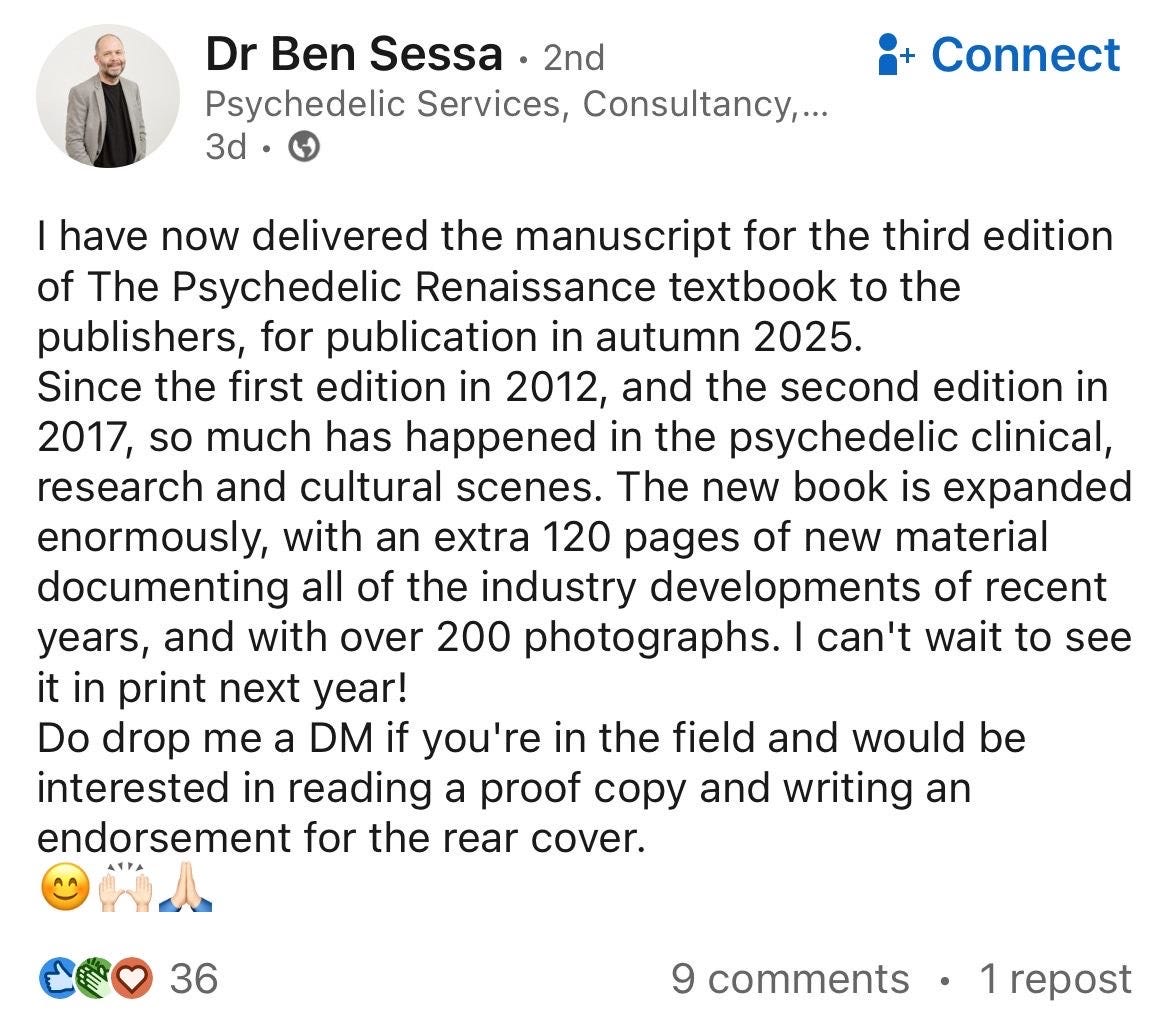Tuesday Brunch: Two Pillars for Psychedelic Safety
Plus other ecstatic links from around the net
Welcome to the Tuesday Brunch round-up of links on psychedelics and other ecstatic technologies. First bit is free, the rest is for paid subscribers. University students and researchers get a discount if they sign up with their .edu emails.
There’s a lot of focus on safety and ethics in psychedelics at the moment, including among investors.
Psychedelic Alpha published the results of its survey of over 100 investors in psychedelics, asking them what they were most excited about and most worried about in the space.
Their second-biggest concern, after ‘regulatory and legislative barriers’, was ‘safety and ethics’ - this wasn’t even in the top ten when Psychedelic Alpha last did the survey two years ago.
There are now several ‘psychedelic safety and ethics’ initiatives being launched, including the new Psychedelic Safety Institute in the US, and PsyAware in Europe.
It’s important that, in the next two years, those advocating for better psychedelic safety and ethics focus on a few key achievable goals. To my mind, there are two principal ones:
1) Learning what adverse events people can experience after psychedelics and what helps people recover from those AEs, then communicating that information widely.
I am confident the field can make large strides towards this goal in the next three years. I’m already impressed by ChatGPT’s answer when I asked it ‘what are the mental health risks of psychedelics’ - AI is more trustworthy on this topic that your average drunk-the-kool-aid psychonaut!
2) Protecting people from boundary violations in psychedelic culture and industry.
I see this as an existential risk for psychedelic culture - psychedelics are aphrodisiacs, they also enhance suggestibility, and a lot of professionals in the psychedelic industry are low-boundary polyamorous ‘juicy’ types who think their magic touch is healing…That’s a heady, dangerous cocktail. Like I said last week, it’s absolutely fine to be psychedelic-polyamorous, but don’t take advantage of clients’ suggestibility to groom them into your lifestyle then f*ck them while promising them healing! That is not healing, that is predation.
The main way to protect against this risk is by increasing the professional consequences for misconduct (ie f*cking clients) - it should be written about, and it should lead to sanctions, including people no longer working as psychedelic therapists or guides if they don’t accept basic ethical guidelines (like ‘don’t f*ck your clients).
But even in the licensed psychiatry space you sadly see bad actors bouncing back. Look at Ben Sessa, whose psychiatry license was suspended in March of this year after he admitted having sex with a vulnerable client who then took her own life. He’s already back, launching a new edition of his book The Psychedelic Renaissance. He once told a colleague the only risk of psychedelics was not getting access to them. Psychedelic culture deserves better leaders than this.
Come to our event next week, December 3rd, on ‘managing risk in psychedelics and extreme sports’, featuring Jamie Wheal, Dr Lindsay Bira and Rob Coffey. Paid subscribers get a free ticket - code provided after paywall
Also after the paywall, Erin Robbins - heir to Baskin-Robbins - speaks out about experiencing sexual abuse by Osho, and what Wild Wild Country left out.





